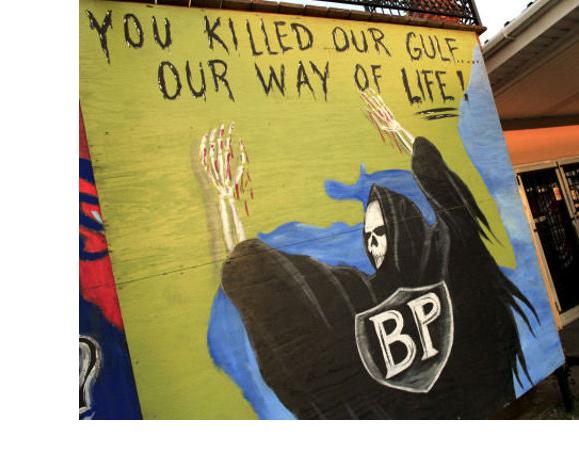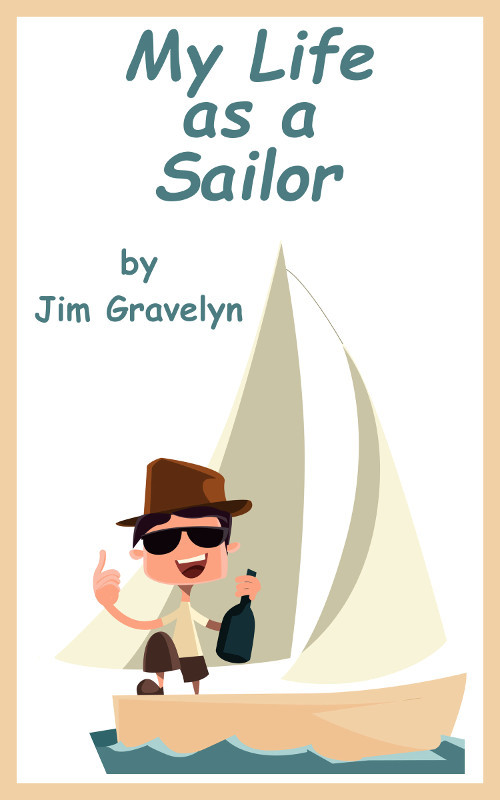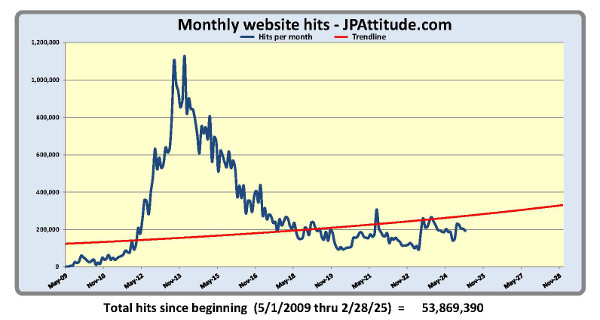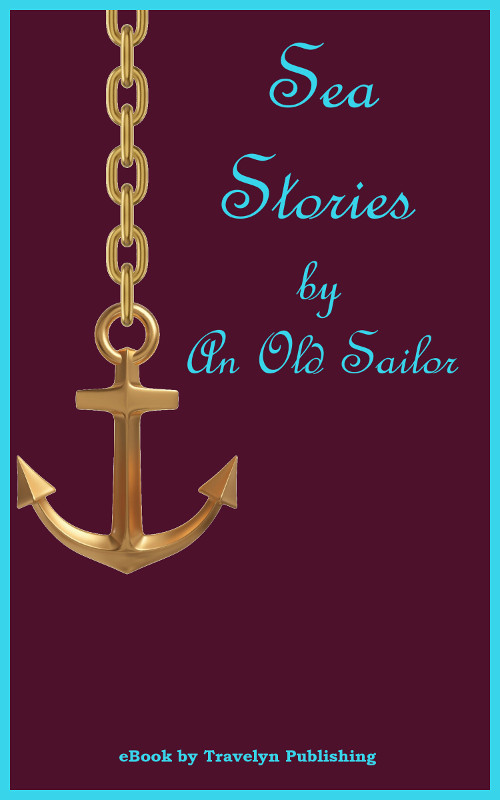Gulf oil disaster: the good, the bad, and the ugly
June 8, 2010
 It’s been 49 days now since British Petroleum’s Deepwater Horizon offshore drilling platform had a blowout, late on Tuesday evening, April 20. Oil has been gushing into the Gulf of Mexico ever since.
It’s been 49 days now since British Petroleum’s Deepwater Horizon offshore drilling platform had a blowout, late on Tuesday evening, April 20. Oil has been gushing into the Gulf of Mexico ever since.The news media has gone ape-shit, as usual, losing all perspective, common sense, and usefulness. When it comes to global warming they show us polar bears and when it comes to oil spills they show us oily birds. That’s pretty much the level of discussion in the mainstream media.
The Gulf oil leak is bad, yes, and even sad, yes, but it’s not the end of the world or even the end of the Gulf of Mexico. On a disaster scale of 1 to 10, with the 2004 Indian Ocean tsunami rated 10, this is barely a 2.
Maybe the following facts and figures can help restore perspective.
The bad news
After the blowout and explosion, which killed 11 men, the platform burned for more than 24 hours before sinking and it wasn’t until April 22 that the Coast Guard, noticing an awful lot of oil in the water, told CNN they estimated a leak of 8,000 barrels per day.
A barrel of oil is 42 gallons so the Coast Guard’s original estimate was 336,000 gallons of oil per day. Not a bad preliminary estimate, as the future would show. Give the Coasties credit for being on top of things early.
On April 23, after sending a remotely-operated underwater vehicle down to take a look, BP announced that the burned and sunken oil rig was not leaking, and no oil was flowing from the well itself. Seriously, that’s what they said. Either the company’s robot submarine flew off course and ended up scanning the bottom of a New Orleans swimming pool or BP was lying like a rug.
Maybe they hoped they could sell the notion that nothing was leaking because the problem was so deep underwater. Almost a mile down. There’s not much experience with leaks that deep and maybe they hoped the extreme pressure and cold temperatures would cause the problem to solve itself or remain out of sight. Imagine a meeting at corporate headquarters, BP crisis team sitting around a table, and somebody blurting, “Yeah, okay, oil is flowing at a horrible rate, but who will ever know besides us? C’mon, guys, it’s a mile down! Nobody can get down there to look except us!”
Their scheme died a quick death because when it comes to water and oil leaks the Coast Guard is pretty damn smart—and because oil tends to rise to the surface even when it starts out real deep.
The next day BP admitted they had a leak at the wellhead. They said it was leaking about 1,000 barrels per day. 42,000 gallons.
Notice that the admission came with an effort to soft-peddle the problem by low-balling the estimate. Apparently they were still hoping to slide out of this mess somehow. Hey, there might be a flock of Loch Ness Monsters living down there who snack on oil and then poop out pure H2O and diamonds. Who knows?
On April 28 the National Oceanic and Atmospheric Administration looked at satellite pictures of the growing oil slick and estimated that oil was gushing into the Gulf at a rate of 5,000 barrels per day. 210,000 gallons.
Over the next few weeks, with BP being obstinately uncooperative about giving anybody video footage of the oil flow, the estimates continued to rise. The official government estimate came out on May 27: 12,000 to 19,000 barrels per day. Between 504,000 and 798,000 gallons.
That sounds scary but it gets worse. Turns out there are people who spend their whole academic careers studying hydrothermal vents, which are basically deep ocean flows like this one, and when those people saw video of the leak they calculated estimates much higher than the government’s. Steven Wereley, for instance, is an associate professor at Purdue University who used particle image velocimetry and then testified before Congress that he estimated about 100,000 barrels per day. 4 million gallons.
That’s a lot of oil. Total daily oil usage for the United States is 19.5 million barrels, so BP has a leak gushing more than half of 1% of U.S. oil consumption directly into the sea. If the cost of the lost oil rig (over half a billion dollars), and the cost of cleaning up the mess (surely over a billion dollars), and the cost of claims by unemployed fishermen and tourist businesses (God knows how much), doesn’t already have BP weeping into their morning Cheerios, watching seven million dollars worth of oil go down the toilet every day should do the trick.
Ouch, right?
The dollar numbers explain why BP’s attempts to stop the leak seem overly concentrated on siphoning the wayward oil into tanker ships rather than just “plugging the damn leak,” to use our president’s words. Louisiana fishermen are suspicious of BP’s motives and they should be. The oil leaking into the Gulf represents nearly 3 billion dollars worth of annual revenue, which will pay for a lot of dead fish and bad press. And that’s merely at the leak rate. If BP can attach some kind of device to the spewing wellhead and gain control, and actually start pumping the oil out, that 3 billion dollars per year will go higher.
The good news
Now for the reasons why this mess isn’t nearly as bad as doomsayers are trying to portray.
The Gulf of Mexico contains approximately 660 quadrillion gallons of water, so the daily leak, even using the biggest estimate, amounts to only six trillionths of the total water in the Gulf. It would have to leak that much oil every day for 4½ million years to equal just 1% of the water in the Gulf.
How’s that for some instant perspective?
But wait a minute, during the course of that 4½ million years two other things will be happening at the same time: one, the Gulf Stream will be steadily carrying the oil out into the Atlantic Ocean, an even bigger body of water, where 4 million gallons amounts to even less than six trillionths (a lot less); and two, the oil will be disappearing almost as fast as it’s leaking.
That’s what oil exposed to a marine environment does. It disappears. Funny how the oil-hating environmental-whacko wingnuts of the left never mention that point.
There are eight different processes which cause oil in a marine environment to disappear: physical transport, dissolution, emulsification, oxidation/destruction, sedimentation, microbial degradation, aggregation, and self-purification. Most of those labels are at least partially self-explanatory.
Of the eight processes, physical transport, microbial destruction, and self-purification are the most important.
The physical transport process includes the previously-mentioned Gulf Stream which continuously empties the Gulf into the Atlantic like a flushing toilet, and also includes evaporation which is important because it vacuums up 50% of the oil within the first two days. Just like that, like a wizard waved a magic wand, the scope of the disaster is cut in half without hurting anybody… although you might not want to light a cigarette immediately downwind.
See how this perspective thing works when you learn some facts?
Rush Limbaugh thought it was hilarious during the first few weeks that everybody was moaning about the oil spill but nobody was seeing any oil. “It’s evaporating,” he chuckled, “but they don’t seem to understand that.” Then he really got lambasted for implying that oil was nothing more than fertilizer and would eventually contribute to the food chain and be beneficial. It was like he farted in the elevator. How dare he utter such heresy? Oil is bad! Doesn’t he know that!?
Oil is hydrocarbons, right? a word whose most pertinent part is carbon. Carbon happens to be the element which forms the basis of life on Planet Earth—duh—and if something or someone is made of carbon it’s guaranteed that something or someone else is willing and eager to eat it. In other words, simplistic as academics and environmentalists might find Limbaugh’s fertilizer comment, it’s basically true.
Microbial destruction is the process by which bacteria attack, ingest, and metabolize crude oil, turning it into something else just as surely as people turn Big Macs into something else. They do this regardless of what hand-wringing politicians say or do. The process is inevitable and immediate because the oceans of the world are literally swimming with bacteria which consider oil to be a tasty meal. It’s a complicated process, because crude oil is a complicated substance, with many and various chemical compounds, some of which are easy to digest and others which are so hard to digest that only very specialized bacteria can eat them. Things get even more difficult if the oil enters the Louisiana marshes where water circulation is slow to non-existent and consequently the bacteria have a hard time reaching the oil. But even there, in the marshes, scientific experiments show that oil is destroyed at a rate ranging from 2% to 7% per day.
So in the worst place the oil can go—the marshes—using the worst microbial destruction rate observed—2%—the oil is gone in 50 days.
So no harm at all? No, it’s not harmless. Like spilling lawn fertilizer on a lawn kills the grass where the spill happened, too much oil does a lot of killing before it’s destroyed. As bacteria don bibs and tuck into their oil feast, they multiply and thrive until they form a mass of life which hogs the available oxygen. Biologists being interviewed on TV often mention the oxygen level in the Gulf and how low it's getting because of the oil spill—that’s uncomfortable (even deadly) for the fish but it’s basically a good thing because low oxygen levels mean the oil-eating bacteria are thriving.
Doing their job. Multiplying.
Between the physical transport of the oil and the microbial destruction of the oil there isn’t much left in the long run to worry about but any oil which manages to escape the Gulf Current, doesn’t evaporate, and outruns the ravenous bacteria, is destined to endure a process called self-purification by which the oil eventually reaches thermodynamic equilibrium with the water, breaks down into intermediate compounds, and then finally turns into carbon dioxide and water.
Not so bad, eh? Carbon dioxide and water. Those are hardly plutonium-level poisons.
So the process of cleaning up an oil spill is natural and inevitable. It’s heart-rending to watch a pelican covered with oil or see a dead dolphin but the bacteria which feed on the oil will in turn be fed upon by larger organisms, who will serve as food for larger, and so on. If biologists can manage to protect the few endangered species which cannot afford even a modest die-off, the rest of the ecological system will not only survive but enjoy boom times, thanks to the oil.
The ugly
The one thing which short-circuits this natural process is the addition of chemical dispersants, which BP has been spraying all over the oil spill, and the detergents used for cleaning up coastlines. BP should know better, the government should know better, anybody with a brain should know better. Many of the chemicals they are using are poisonous to the bacteria which are eating the oil and even when they aren’t directly poisonous they interfere with the natural process.
We’ve been through this before, and we can examine the results. In 1978 the oil tanker Amoco Cadiz split in two off the Normandy coast, spilling 227,000 tons of heavy crude that washed ashore along 200 miles of coastline. That spill turned into a giant experiment in what to do and what not to do. Wherever the busy-body cleanup people used chemical detergents to clean the beaches, environmental effects remain to this day. In isolated stretches of coastline where they didn’t bother with clean up, there was full recovery of the environment within five years.
Similarly, after the Exxon Valdez spilled 11 million gallons along 1,300 miles of Alaska coastline in 1989, they used detergents for clean-up and chemical fertilizers to encourage bacteria but what they accomplished was a short-term clean-up which looked good for television cameras and made great cover art for Exxon public relations brochures but upset the natural balance of the ecosystem so much that the area is still not the same as it was.
We even have experience in the Gulf of Mexico. In 1979 the Mexican drilling rig Ixtoc I had a blowout, in almost exactly the same way the Deepwater Horizon exploded. Three million barrels leaked into the Gulf over the course of ten months and there were no long term effects on the environment, although, because the Mexicans sprayed chemical dispersants just like BP is doing, environmental recovery undoubtedly took longer than necessary.
The best example of all is the intentional spill created by Saddam Hussein as he retreated from Kuwait in 1991 during Desert Storm. Eight million barrels of oil spilled into the Gulf of Arabia and, since there was a war going on, very little effort was made to spray chemical dispersants or scrub beaches or any of that sort of nonsense. One year later UNESCO sponsored a study to determine the effect on the environment and they reported “few unequivocal oil pollution effects attributable solely to the 1991 oil spills.”
Leave it alone and the bacteria eat it!
Basically, the chemical dispersants BP has been spraying on the Gulf are akin to a housekeeper who sweeps dust under the rug. BP is making the oil sink, where it’s out of sight and less of a public relations problem, but down there on the floor of the Gulf it’s out of reach of the surface bacteria which are supposed to clean it up.
How stupid is that?
Carbon is carbon and therefore food, anywhere it goes, so the oil BP sends to the bottom will still be consumed but there’s very little oxygen down there so the kind of bacteria will have to be different: anaerobic bacteria rather than aerobic bacteria. The difference between the two? Anaerobic bacteria take thirty to forty times longer to do the job.
Anaerobic bacteria are the unionized government workers of the one-celled animal kingdom.
And hey, if the self-defeating nature of the chemical dispersants isn’t bad enough, well, they're also chock full of poisons and carcinogens which are almost certainly worse for the long-term health of the environment than the oil itself. Isn’t it lovely to think about eating fish from the Gulf of Mexico after BP has spent months spraying carcinogenic chemicals into the water? Yummy.
BP is sweeping their dust under the rug. Oil on the surface of the water and oil washing up on beaches is an ugly thing, and creates a lot of emotional response, but the actual damage to the environment is minimal and temporary if they simply leave it alone.
Meanwhile we have a president who can barely be bothered to take a look at what’s happening. With the Gulf oil spill and the Nashville flooding hitting at the same time, President Obama spent a month partying and meeting various championship sports teams and golfing and taking vacations and giving speeches at Democrat fundraisers and going to college commencements. And avoiding both disaster areas.
(It was two weeks after he heard about the oil spill before Obama found the time to visit Louisiana and then he squeezed in another quick visit before his Memorial Day weekend vacation in Chicago but only after the national news media made a ruckus about taking another vacation during the oil spill disaster. He didn’t bother visiting the Nashville flood at all. Couldn’t even find time for a flyover.)
Just in the past week Barack and Michelle have attended two black-tie musical events. On Wednesday Paul McCartney gave a special White House concert for the Obamas and then on Sunday they visited Ford Theatre to be entertained by Kelly Clarkson, Renee Fleming, George Lopez, Lionel Richie, Robin Roberts, Dick Van Dyke, Laura Michelle Kelly, Gavin Lee... and a bunch of others. Good times. Party on, Prez.
To hell with those working-stiff blue-collar fishermen in Louisiana.
But give the man credit—he did manage to do the absolutely worst thing possible: last Thursday, June 3, the Obama Administration announced that the federal government is suspending all oil drilling in the Gulf of Mexico. While oil in the water potentially affects thousands of Louisiana fishing jobs, the suspension of drilling potentially affects tens of thousands of Louisiana oil jobs and at the same time deals another body blow to the U.S. economy which is utterly dependent upon the energy derived from oil to function—so Obama just magnified the disaster by a factor of ten.
Oh, by the way, sensing a golden opportunity, he’s using Deepwater Horizon as an excuse to push cap and trade climate legislation through Congress which will make energy costs skyrocket. If that happens, average Americans will end up paying a higher price for the Deepwater Horizon disaster than British Petroleum.
How’s that for leadership?
From Reno, Nevada, USA
June 11, 2010 - I have a very good friend. Who just happens to be black. She HATED Obama. I also will mention that she is from Louisiana. Now explain to me how a black woman from the south could HATE Obama and like McCain. Just think and contemplate this. Then give me an educated answer that is backed up with facts, not opinion. - Karla, Nevada
June 11, 2010 - When I see the oil-covered birds on television now, I think about your piece. Not sure you aren't underestimating the problem as much as the media is overestimating it, but at least you've given me some fodder for thought. Thanks for that. - Rockie, Illinois
June 10, 2010 - You're even crazier than usual. Have you seen the giant globs of oilie crap they're pulling off those beaches down there? Ain't no bacteria gonna clean that up. You're right about the way Obama ignored Tennessee though. He treated us like red-haired stepchildren. - Willie, Tennessee
June 8, 2010 - [Speaking of commencements,] somehow the liberal networks (all of them) didn't see this, or chose not to report it. FOX News reported it. We should all be so proud of the youth of today. Hilarious... Kalamazoo Central High student falls asleep behind Obama. - Todd L., Michigan
June 8, 2010 - My father lives in Gulfport, MS, right on the beach in an Armed Forces Retirement Facility that was wiped out by Katrina. The new facility is going to be completed soon and the veterans will be returning to the Gulf. My father said that the worst thing Obama could do is suspend drilling. The economy in that region is more dependant on the oil platforms than it is on tourism and fishing. So way to go obama. You didn't protect the shores from oil. You don't protect our borders from invading countries, i.e. Mexico, you don't protect us from terrorists, you actually lie in bed with them, you aren't protecting my meager savings in the bank as daily I watch that value shrink by the minute. You print money, borrow money, write checks you have no intention of covering, you spend money like a drunkin sailor in port on pay day visiting a whore house, you talk down to every hard working loyal America who drives a truck and owns a gun such as myself, you have no intentions of recovering the economy as your agenda is clearly to bankrupt this nation so that the government will have justification for taking over every aspect of our lives and then if that's not bad enough you have the nerve to stand up and say, "The reason I am doing what I am doing is so I know whose ass to kick." Whatever. You are a destroyer from the word go mr. obama and remember this...... I can see November from my house! - Domme Yankee, Connecticut
J.P. replies: I have no idea. Every black person I know seems to have sworn blind allegiance to Obama. Conservative black columnists like Thomas Sowell, Larry Elder, Walter E. Williams, and Harry R. Jackson, Jr., all seem to despise Obama as much as I do but they are very much the exception. I’ve heard that black opinion is slowly starting to turn negative but so far I’m not seeing it. If you know why your friend hates Obama, I’d love to hear the answer.
June 11, 2010 - When I see the oil-covered birds on television now, I think about your piece. Not sure you aren't underestimating the problem as much as the media is overestimating it, but at least you've given me some fodder for thought. Thanks for that. - Rockie, Illinois
June 10, 2010 - You're even crazier than usual. Have you seen the giant globs of oilie crap they're pulling off those beaches down there? Ain't no bacteria gonna clean that up. You're right about the way Obama ignored Tennessee though. He treated us like red-haired stepchildren. - Willie, Tennessee
June 8, 2010 - [Speaking of commencements,] somehow the liberal networks (all of them) didn't see this, or chose not to report it. FOX News reported it. We should all be so proud of the youth of today. Hilarious... Kalamazoo Central High student falls asleep behind Obama. - Todd L., Michigan
June 8, 2010 - My father lives in Gulfport, MS, right on the beach in an Armed Forces Retirement Facility that was wiped out by Katrina. The new facility is going to be completed soon and the veterans will be returning to the Gulf. My father said that the worst thing Obama could do is suspend drilling. The economy in that region is more dependant on the oil platforms than it is on tourism and fishing. So way to go obama. You didn't protect the shores from oil. You don't protect our borders from invading countries, i.e. Mexico, you don't protect us from terrorists, you actually lie in bed with them, you aren't protecting my meager savings in the bank as daily I watch that value shrink by the minute. You print money, borrow money, write checks you have no intention of covering, you spend money like a drunkin sailor in port on pay day visiting a whore house, you talk down to every hard working loyal America who drives a truck and owns a gun such as myself, you have no intentions of recovering the economy as your agenda is clearly to bankrupt this nation so that the government will have justification for taking over every aspect of our lives and then if that's not bad enough you have the nerve to stand up and say, "The reason I am doing what I am doing is so I know whose ass to kick." Whatever. You are a destroyer from the word go mr. obama and remember this...... I can see November from my house! - Domme Yankee, Connecticut













